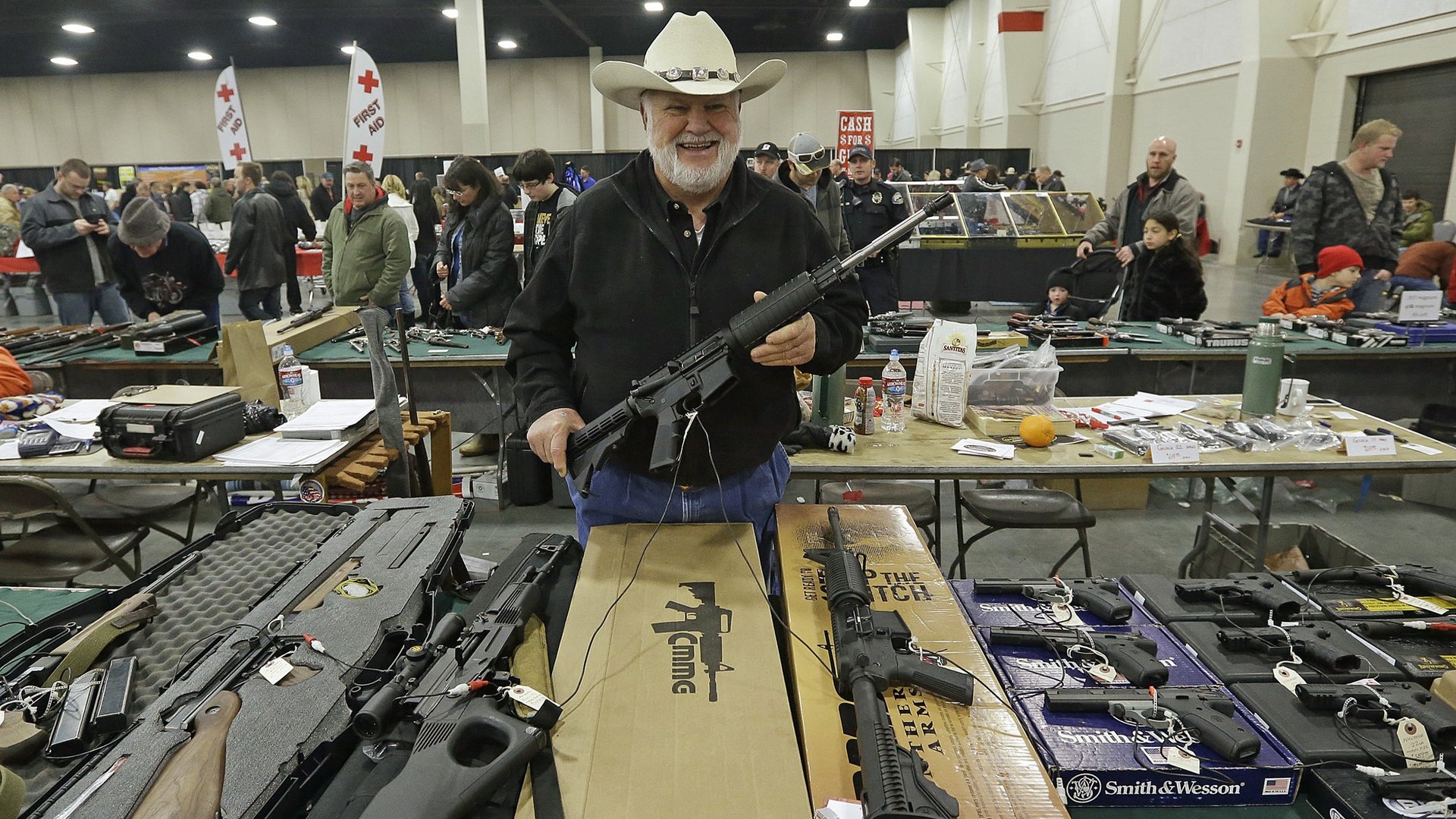Obama’s gun safety targets—and the obstacles before them
This morning in Washington, President Barack Obama announced gun safety reforms that his administration proposes to combat the violent massacres that have increasingly horrified the United States. You can see the entire list here at our sister publication, National Journal. The key excerpts:


This morning in Washington, President Barack Obama announced gun safety reforms that his administration proposes to combat the violent massacres that have increasingly horrified the United States. You can see the entire list here at our sister publication, National Journal. The key excerpts:
Assault weapons ban: Obama is seeking a reinstatement of an earlier federal ban, which expired in 2004. The original measure was signed by President Clinton in 1994, but Congress declined to renew it.
Gun-violence research: A resumption of research into gun violence by the Centers for Disease Control and Prevention (CDC). Congress took away the research funds because lawmakers worried that the CDC, a federal agency, was advocating gun control. It would be tasked with looking into the causes of gun violence, including a correlation between video games and violent behavior.
Gun-trafficking law: A favorite of Mayors Against Illegal Guns, a gun-control group of which New York mayor Michael Bloomberg is a big backer, this measure would help prevent the trafficking of guns between states. It would make it easier for law-enforcement officers to go after “strawmen” who buys guns for other people and take them across state lines.
Universal background checks: Anyone who buys a gun at a store, a gun show, or through other private sellers would have to go through a criminal background check first. (Right now, only store sales are checked.) Senior White House officials said there would be exceptions for transfers between family members, however. The president will also direct the Bureau of Alcohol, Tobacco, Firearms, and Explosives to explain to licensed dealers how to best run background checks on potential buyers.
Obama can enact some of these policies with executive orders, but many will need to be endorsed by Congress. That’s where things get interesting.
While a big majority of Americans support ideas like universal background checks on their face, gun regulation—and the logistics of its implementation—are still hot button issues. It’s easy to say that people with mental illnesses shouldn’t have access to guns, but how do you define mental illness? And what are the privacy and civil-rights implications of maintaining a register of people forbidden from owning a gun? Here’s National Journal’s Fawn Johnson on what stands in the way of any legislative action to limit gun violence:
Even the most committed of gun-control advocates will admit that handguns are a far more prevalent problem in the United States than the semiautomatic firearms that are generally thought of as assault weapons. Yet banning handguns is out of the question, especially after the Supreme Court’s 2008 District of Columbia v. Heller decision unequivocally stating an individual’s right to own a firearm.
That leaves Obama and Democrats stuck with pushing for an assault-weapons ban, even though the last ban (from 1994 to 2004) grandfathered in existing assault rifles and allowed manufacturers to change a few specs on their new rifles to dodge the standards. It hardly seemed worth the effort.
While the national tragedy of last month’s school massacre in Newton, Connecticut have the public demanding solutions, even the most technocratic ones are going to run into a thicket of legal, cultural and logistical challenges—not to mention gun industry lobbying. That means another reform slog in Washington, where debates on the deficit and debt ceiling are likely to be taking up quite a lot of legislators’ and officials’ time already.
More on gun control from National Journal:
Why Gun Control Is a Tough Sell for Obama